main | agenda | speaker bios | registration
Speaker Information
Dennis M. Donovan, PhD (host)
 Dr. Donovan is a Professor in the UW Department of Psychiatry and Behavioral Sciences, and Director of the UW Alcohol and Drug Abuse Institute since 1993. He has served as Principal Investigator on dozens of federally funded grants, including NIAAA's Project MATCH, the NIAAA COMBINE Study, and NIDA's National Drug Abuse Treatment Clinical Trials Network (CTN). In the CTN, he chairs the Research Development Committee and is a member of the Publications Committee. He is also the Principal Investigator of the Pacific Northwest Node of the NIDA Clinical Trials Network. Dr. Donovan has published more than 250 articles, chapters, and books in the area of alcoholism and addictive behaviors. He is a Fellow in the American Psychological Association Division 50 (Society of Addiction Psychology) and also Division 28 (Psychopharmacology and Substance Abuse), as well as the recipient of numerous awards and honors. [more]
Dr. Donovan is a Professor in the UW Department of Psychiatry and Behavioral Sciences, and Director of the UW Alcohol and Drug Abuse Institute since 1993. He has served as Principal Investigator on dozens of federally funded grants, including NIAAA's Project MATCH, the NIAAA COMBINE Study, and NIDA's National Drug Abuse Treatment Clinical Trials Network (CTN). In the CTN, he chairs the Research Development Committee and is a member of the Publications Committee. He is also the Principal Investigator of the Pacific Northwest Node of the NIDA Clinical Trials Network. Dr. Donovan has published more than 250 articles, chapters, and books in the area of alcoholism and addictive behaviors. He is a Fellow in the American Psychological Association Division 50 (Society of Addiction Psychology) and also Division 28 (Psychopharmacology and Substance Abuse), as well as the recipient of numerous awards and honors. [more]
Michael G. McDonell, PhD
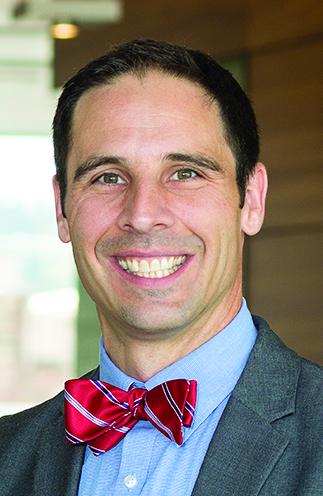 Dr. McDonell is an Associate Professor in the WSU Elson S. Floyd College of Medicine and an Affiliate Associate Professor in the UW Department of Psychiatry and Behavioral Sciences. He is the Chair of the Committee for Cannabis Research and Outreach at WSU and a member of the Program of Excellence in Addictions Research (PEAR). Dr. McDonell has an extensive background in developing and testing the effectiveness of treatments for co-occurring substance use disorders and severe mental illness. He is also active in public health research and behavioral interventions in American Indian and Alaska Native communities, as well as research focused on first episode psychosis and child abuse prevention. Dr. McDonell has published more than 50 articles, chapters, and books in the areas of substance use and psychiatric disorders. His clinical background includes over 14 years of delivering evidence based interventions for addiction and mental health problems in community clinics. [more]
Dr. McDonell is an Associate Professor in the WSU Elson S. Floyd College of Medicine and an Affiliate Associate Professor in the UW Department of Psychiatry and Behavioral Sciences. He is the Chair of the Committee for Cannabis Research and Outreach at WSU and a member of the Program of Excellence in Addictions Research (PEAR). Dr. McDonell has an extensive background in developing and testing the effectiveness of treatments for co-occurring substance use disorders and severe mental illness. He is also active in public health research and behavioral interventions in American Indian and Alaska Native communities, as well as research focused on first episode psychosis and child abuse prevention. Dr. McDonell has published more than 50 articles, chapters, and books in the areas of substance use and psychiatric disorders. His clinical background includes over 14 years of delivering evidence based interventions for addiction and mental health problems in community clinics. [more]
Beatriz Carlini, PhD, MPH
 Dr. Carlini is a Senior Research Scientist at the University of Washington's Alcohol & Drug Abuse Institute (ADAI) and Affiliate Associate Professor at the School of Public Health. Her research career has been dedicated to understanding the public health impact of legal psychoactive substances such as alcohol, tobacco, and inhalants and most recently, marijuana. Dr. Carlini is active in marijuana legalization research in Washington and participates in multi-agency discussions and workgroups involving marijuana policy and public health. In 2016 she was appointed to coordinate marijuana research activities at ADAI, collaborate with other marijuana researchers at the UW, and liaison with policy makers in Washington State and researchers at other universities. Dr. Carlini developed in-person and online training programs for health care providers and other helping professionals about smoking cessation, medicinal cannabis,, cannabis products, cannabis use disorders, and resources for support. [more]
Dr. Carlini is a Senior Research Scientist at the University of Washington's Alcohol & Drug Abuse Institute (ADAI) and Affiliate Associate Professor at the School of Public Health. Her research career has been dedicated to understanding the public health impact of legal psychoactive substances such as alcohol, tobacco, and inhalants and most recently, marijuana. Dr. Carlini is active in marijuana legalization research in Washington and participates in multi-agency discussions and workgroups involving marijuana policy and public health. In 2016 she was appointed to coordinate marijuana research activities at ADAI, collaborate with other marijuana researchers at the UW, and liaison with policy makers in Washington State and researchers at other universities. Dr. Carlini developed in-person and online training programs for health care providers and other helping professionals about smoking cessation, medicinal cannabis,, cannabis products, cannabis use disorders, and resources for support. [more]
Bob Ferguson (Keynote Speaker)
 Bob Ferguson is Washington State’s 18th Attorney General, and serves as the state’s chief legal officer. He has successfully argued in front of the Washington State Supreme Court, and his office handles many other cases of state and national importance. Ferguson is a fourth-generation Washingtonian, a graduate of the University of Washington and New York University law school. Ferguson issued an official Attorney General Opinion in 2014 regarding Washington's marijuana laws and regulation at the local level. In addition, the office is involved in litigation around the state regarding Washington’s legal marijuana system. Ferguson is also monitoring the potential impacts of U.S. Attorney General Jeff Sessions' rescission of the Cole Memo, which provided guidance to states that have legalized marijuana. [more]
Bob Ferguson is Washington State’s 18th Attorney General, and serves as the state’s chief legal officer. He has successfully argued in front of the Washington State Supreme Court, and his office handles many other cases of state and national importance. Ferguson is a fourth-generation Washingtonian, a graduate of the University of Washington and New York University law school. Ferguson issued an official Attorney General Opinion in 2014 regarding Washington's marijuana laws and regulation at the local level. In addition, the office is involved in litigation around the state regarding Washington’s legal marijuana system. Ferguson is also monitoring the potential impacts of U.S. Attorney General Jeff Sessions' rescission of the Cole Memo, which provided guidance to states that have legalized marijuana. [more]
Celestina Barbosa-Leiker, PhD
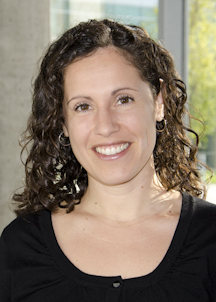 Dr. Barbosa-Leiker is the Associate Dean for Research and an Associate Professor in the College of Nursing at Washington State University (WSU). She is also the Director for the Program of Excellence in Addictions Research and a member of the Committee on Cannabis Research and Outreach at WSU. Dr. Barbosa-Leiker’s primary research investigates gender differences in opioid use. He research has demonstrated sex differences in the measurement of opioid withdrawal, relapse while in treatment, and predictors of relapse. Her additional line of research focuses on the transition from pregnancy to parenthood in women with substance use disorders. She is currently leading an interdisciplinary research team to assess mothers, infants, and healthcare providers in order to better care for women with opioid use disorders, as well as for women using cannabis during pregnancy. The results of these studies will help better educate healthcare providers and pregnant women, inform maternal and infant health policy, and improve standards of care. Dr. Barbosa-Leiker has methodological expertise in psychometrics and longitudinal latent variable modeling. She serves a statistical mentor for American Indian/Alaska Native faculty through a NIH P20 grant titled “Collaborative Action toward Community Health.” [more]
Dr. Barbosa-Leiker is the Associate Dean for Research and an Associate Professor in the College of Nursing at Washington State University (WSU). She is also the Director for the Program of Excellence in Addictions Research and a member of the Committee on Cannabis Research and Outreach at WSU. Dr. Barbosa-Leiker’s primary research investigates gender differences in opioid use. He research has demonstrated sex differences in the measurement of opioid withdrawal, relapse while in treatment, and predictors of relapse. Her additional line of research focuses on the transition from pregnancy to parenthood in women with substance use disorders. She is currently leading an interdisciplinary research team to assess mothers, infants, and healthcare providers in order to better care for women with opioid use disorders, as well as for women using cannabis during pregnancy. The results of these studies will help better educate healthcare providers and pregnant women, inform maternal and infant health policy, and improve standards of care. Dr. Barbosa-Leiker has methodological expertise in psychometrics and longitudinal latent variable modeling. She serves a statistical mentor for American Indian/Alaska Native faculty through a NIH P20 grant titled “Collaborative Action toward Community Health.” [more]
Michele Bedard-Gilligan, PhD, MS
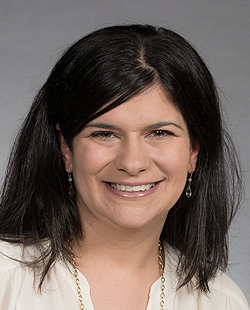 Dr. Bedard-Gilligan is an Assistant Professor in the Department of Psychiatry and Behavioral Sciences and a licensed clinical psychologist in the state of Washington. Dr. Bedard-Gilligan’s research is federally funded and predominantly focuses on recovery process following trauma exposure, with specific emphases on the co-occurrence of posttraumatic stress disorder (PTSD), alcohol, and cannabis use. She is currently the lead investigator on two clinical trials testing brief interventions to better understand the role of alcohol and cannabis in recovery following trauma exposure. She has presented her research at national conferences and has published numerous articles in peer-reviewed journals. She also maintains an active clinical practice at the University of Washington Outpatient Psychiatry Clinic, specializing in delivering empirically supported treatments for PTSD and anxiety disorders. [more]
Dr. Bedard-Gilligan is an Assistant Professor in the Department of Psychiatry and Behavioral Sciences and a licensed clinical psychologist in the state of Washington. Dr. Bedard-Gilligan’s research is federally funded and predominantly focuses on recovery process following trauma exposure, with specific emphases on the co-occurrence of posttraumatic stress disorder (PTSD), alcohol, and cannabis use. She is currently the lead investigator on two clinical trials testing brief interventions to better understand the role of alcohol and cannabis in recovery following trauma exposure. She has presented her research at national conferences and has published numerous articles in peer-reviewed journals. She also maintains an active clinical practice at the University of Washington Outpatient Psychiatry Clinic, specializing in delivering empirically supported treatments for PTSD and anxiety disorders. [more]
Carrie Cuttler, PhD
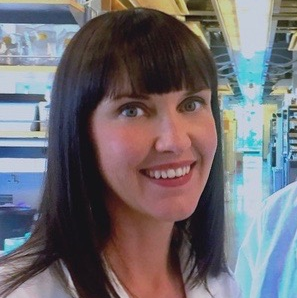 Dr. Cuttler is a Clinical Assistant Professor in the Department of Psychology at Washington State University. Her research focuses on the chronic and acute effects of cannabis on cognition and mental health (e.g., depression, anxiety, obsessive-compulsive disorder). Her current research projects focus on examining i) the acute effects of cannabis on various psychological and medical symptoms and on trying to identify the doses and chemotypes that most effectively reduce these symptoms, ii) the link between stress and cannabis use, with a particular emphasis on the stress response of cannabis users, and iii) the influence of cannabis use (early vs. late onset, concentrate vs. flower) on memory and executive functioning. Dr. Cuttler also created and validated the Daily Sessions, Frequency, Age of Onset of Cannabis Use Inventory (DFAQ-CU) which measures a variety of aspects of cannabis consumption. [more]
Dr. Cuttler is a Clinical Assistant Professor in the Department of Psychology at Washington State University. Her research focuses on the chronic and acute effects of cannabis on cognition and mental health (e.g., depression, anxiety, obsessive-compulsive disorder). Her current research projects focus on examining i) the acute effects of cannabis on various psychological and medical symptoms and on trying to identify the doses and chemotypes that most effectively reduce these symptoms, ii) the link between stress and cannabis use, with a particular emphasis on the stress response of cannabis users, and iii) the influence of cannabis use (early vs. late onset, concentrate vs. flower) on memory and executive functioning. Dr. Cuttler also created and validated the Daily Sessions, Frequency, Age of Onset of Cannabis Use Inventory (DFAQ-CU) which measures a variety of aspects of cannabis consumption. [more]
Therese M. Grant, PhD
 Dr. Grant is an epidemiologist who holds the Ann Streissguth Endowed Professorship in Fetal Alcohol Spectrum Disorders at the University of Washington School Of Medicine. She is director of the UW Fetal Alcohol and Drug Unit, and an Associate Director of the UW Alcohol and Drug Abuse Institute. Dr. Grant developed and directs the Washington State Parent-Child Assistance Program, a multi-site, evidence-based intervention working with pregnant and parenting mothers who have substance use disorders. She has published widely on interventions with high-risk mothers and their children, and effects of prenatal alcohol and drug exposure.
[more]
Dr. Grant is an epidemiologist who holds the Ann Streissguth Endowed Professorship in Fetal Alcohol Spectrum Disorders at the University of Washington School Of Medicine. She is director of the UW Fetal Alcohol and Drug Unit, and an Associate Director of the UW Alcohol and Drug Abuse Institute. Dr. Grant developed and directs the Washington State Parent-Child Assistance Program, a multi-site, evidence-based intervention working with pregnant and parenting mothers who have substance use disorders. She has published widely on interventions with high-risk mothers and their children, and effects of prenatal alcohol and drug exposure.
[more]
Kevin Haggerty, PhD, MSW
 Dr. Haggerty is the Director of the Social Development Research Group in the UW School of Social Work. He is a principal investigator on a variety of projects, including Utah Communities That Care Training program, Staying Connected with Your Teen, Families Facing the Future (formerly Focus on Families) and a National Institute on Drug Abuse-funded study on Family Connections. He is an investigator of the Community Youth Development Study, which tests the effectiveness of the Communities That Care (CTC) program. Dr. Haggerty specializes in prevention programs at the community, school and family level. For more than 30 years, he has focused on developing innovative ways to organize the scientific knowledge base for prevention so that parents, communities and schools can better identify, assess and prioritize customized approaches that meet their needs. An expert on substance abuse and delinquency prevention, Dr. Haggerty speaks, conducts trainings, and writes extensively on this field. [more]
Dr. Haggerty is the Director of the Social Development Research Group in the UW School of Social Work. He is a principal investigator on a variety of projects, including Utah Communities That Care Training program, Staying Connected with Your Teen, Families Facing the Future (formerly Focus on Families) and a National Institute on Drug Abuse-funded study on Family Connections. He is an investigator of the Community Youth Development Study, which tests the effectiveness of the Communities That Care (CTC) program. Dr. Haggerty specializes in prevention programs at the community, school and family level. For more than 30 years, he has focused on developing innovative ways to organize the scientific knowledge base for prevention so that parents, communities and schools can better identify, assess and prioritize customized approaches that meet their needs. An expert on substance abuse and delinquency prevention, Dr. Haggerty speaks, conducts trainings, and writes extensively on this field. [more]
Jeanne Kohl-Welles, PhD
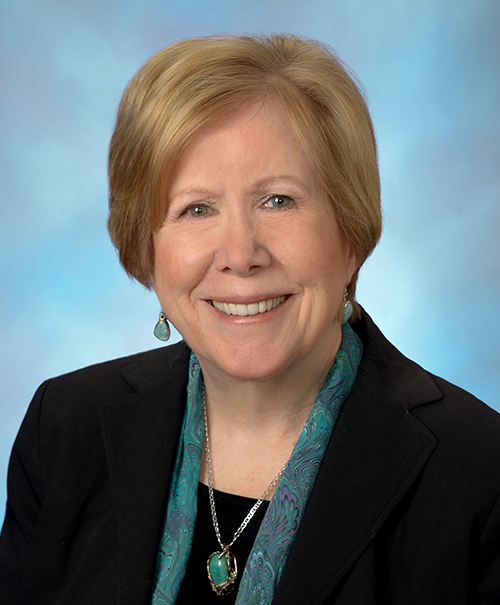 First as a state legislator and now as a King County Councilmember, Jeanne Kohl-Welles has represented a large portion of Seattle for over 25 years. From the late 1990s through 2013, she was the de facto legislative leader on cannabis issues—during which time most legislators did not want to vote on something with “marijuana” in its title and passing such legislation was exceedingly difficult. The 1998 voter-approved Initiative 692 was mostly taken from her legislation of that year, permitting patients to use marijuana recommended by their physicians for limited medical conditions. In 2010, her Senate Bill 5798, extending prescriptive authority to all licensed health care providers, was enacted in order to provide better access to patients in rural areas. One of the most challenging efforts of her career, Senate Bill 5073 was passed by the Legislature with broad bipartisan support. It created a licensed, regulated system for producing, processing, and distributing medical marijuana. However, Gov. Gregoire vetoed most of the bill due to concerns of federal prosecution of state employees, resulting in unregulated confusion that ultimately paved the way for voter approval of Initiative 502 in November, 2012. Her final major cannabis bill, Senate Bill 5121, passed the legislature nearly unanimously in 2015, creating a marijuana research license –the first of its kind in the country. Most recently as a Councilmember, she introduced an ordinance to require pesticide testing of cannabis products sold in King County. While the legislation did not move, it spurred the Washington Liquor and Cannabis Board to enact and enforce rules for pesticide testing. Councilmember Kohl-Welles remains engaged in cannabis issues as they relate to public health. [more]
First as a state legislator and now as a King County Councilmember, Jeanne Kohl-Welles has represented a large portion of Seattle for over 25 years. From the late 1990s through 2013, she was the de facto legislative leader on cannabis issues—during which time most legislators did not want to vote on something with “marijuana” in its title and passing such legislation was exceedingly difficult. The 1998 voter-approved Initiative 692 was mostly taken from her legislation of that year, permitting patients to use marijuana recommended by their physicians for limited medical conditions. In 2010, her Senate Bill 5798, extending prescriptive authority to all licensed health care providers, was enacted in order to provide better access to patients in rural areas. One of the most challenging efforts of her career, Senate Bill 5073 was passed by the Legislature with broad bipartisan support. It created a licensed, regulated system for producing, processing, and distributing medical marijuana. However, Gov. Gregoire vetoed most of the bill due to concerns of federal prosecution of state employees, resulting in unregulated confusion that ultimately paved the way for voter approval of Initiative 502 in November, 2012. Her final major cannabis bill, Senate Bill 5121, passed the legislature nearly unanimously in 2015, creating a marijuana research license –the first of its kind in the country. Most recently as a Councilmember, she introduced an ordinance to require pesticide testing of cannabis products sold in King County. While the legislation did not move, it spurred the Washington Liquor and Cannabis Board to enact and enforce rules for pesticide testing. Councilmember Kohl-Welles remains engaged in cannabis issues as they relate to public health. [more]
Christine Lee, PhD
 Dr. Lee is a Research Professor of Psychiatry and Behavioral Sciences at the UW and Associate Director of the Center of the Study for Health and Risk Behaviors. Trained as a life-span developmental researcher, Dr. Lee's work bridges developmental theory with applied prevention and intervention techniques for addressing high-risk behaviors during the transition to adulthood. Her research focuses on answering questions regarding what motivates young adults to engage in high-risk behaviors such as alcohol and marijuana use; how life events and circumstances influence variation in risk of use and consequences over time; how developmental transitions and timing of events influence use and intervention; and the development of efficacious prevention and intervention efforts. Dr. Lee has published more than 100 articles and book chapters and has received numerous NIH grants. [more]
Dr. Lee is a Research Professor of Psychiatry and Behavioral Sciences at the UW and Associate Director of the Center of the Study for Health and Risk Behaviors. Trained as a life-span developmental researcher, Dr. Lee's work bridges developmental theory with applied prevention and intervention techniques for addressing high-risk behaviors during the transition to adulthood. Her research focuses on answering questions regarding what motivates young adults to engage in high-risk behaviors such as alcohol and marijuana use; how life events and circumstances influence variation in risk of use and consequences over time; how developmental transitions and timing of events influence use and intervention; and the development of efficacious prevention and intervention efforts. Dr. Lee has published more than 100 articles and book chapters and has received numerous NIH grants. [more]
Michael M. Morgan, PhD
 Dr. Morgan is a Professor of Psychology at the WSU Vancouver camus. His research is focused on opioid mechanisms for the treatment of pain, the impact of chronic pain on the magnitude and duration of spontaneous opioid withdrawal, and interaction between mu opioid and CB1 cannabinoid receptors in the periaqueductal gray (PAG). Dr. Morgan has received numerous grants from NIH and published more than sixty articles in peer-reviewed journals on these topics. [more]
Dr. Morgan is a Professor of Psychology at the WSU Vancouver camus. His research is focused on opioid mechanisms for the treatment of pain, the impact of chronic pain on the magnitude and duration of spontaneous opioid withdrawal, and interaction between mu opioid and CB1 cannabinoid receptors in the periaqueductal gray (PAG). Dr. Morgan has received numerous grants from NIH and published more than sixty articles in peer-reviewed journals on these topics. [more]
Gillian Schauer, PhD, MPH
 Dr. Schauer is a Senior Policy Fellow with the the Centers for Disease Control and Prevention (CDC) Foundation, and a Senior Consultant with the Office on Smoking and Health at CDC. Prior to working at CDC, she served as the Manager of the Health Systems Training and Outreach Division at Free & Clear (now part of Optum, a UnitedHealth Group company). She is also a Clinical Instructor in the UW Department of Health Services and Co-Instructor in the Tobacco Studies Program. Dr. Schauer’s research focuses on marijuana policy, co-use of marijuana and tobacco, tobacco cessation, and health systems transformation. She has more than 50 peer-reviewed publications on these topics. [more]
Dr. Schauer is a Senior Policy Fellow with the the Centers for Disease Control and Prevention (CDC) Foundation, and a Senior Consultant with the Office on Smoking and Health at CDC. Prior to working at CDC, she served as the Manager of the Health Systems Training and Outreach Division at Free & Clear (now part of Optum, a UnitedHealth Group company). She is also a Clinical Instructor in the UW Department of Health Services and Co-Instructor in the Tobacco Studies Program. Dr. Schauer’s research focuses on marijuana policy, co-use of marijuana and tobacco, tobacco cessation, and health systems transformation. She has more than 50 peer-reviewed publications on these topics. [more]
Nephi Stella, PhD
 Dr. Stella is a Professor in the departments of Pharmacology and Psychiatry and Behavioral Sciences at the University of Washington. He was recently named Director of the UW Center for Cannabis Research. Dr. Stella's studies focus on the therapeutic value and molecular mechanism of action of drugs targeting the cannabinoid signaling system. The goal of the research is to develop novel treatments for brain deficits and cognitive impairment linked to neurodegeneration (Huntington's Disease) and drug addiction. For over 20 years, Dr Stella has studied the molecular mechanism and therapeutic value of cannabinoid-based molecules and endogenously-produced cannabinoids for the treatment of various diseases of the brain. This body of work led to the optimization of several medicinal properties of phytocannabinoids, synthetic cannabinoids and endocannabinoids for the treatment and possible cure of devastating untreatable diseases, including Dravet Syndrome and brain cancers. In 2011, he founded Stella Therapeutics, Inc., a University of Washington start-up company dedicated to developing cannabinoid-based medicines to safely treat cancer. [more]
Dr. Stella is a Professor in the departments of Pharmacology and Psychiatry and Behavioral Sciences at the University of Washington. He was recently named Director of the UW Center for Cannabis Research. Dr. Stella's studies focus on the therapeutic value and molecular mechanism of action of drugs targeting the cannabinoid signaling system. The goal of the research is to develop novel treatments for brain deficits and cognitive impairment linked to neurodegeneration (Huntington's Disease) and drug addiction. For over 20 years, Dr Stella has studied the molecular mechanism and therapeutic value of cannabinoid-based molecules and endogenously-produced cannabinoids for the treatment of various diseases of the brain. This body of work led to the optimization of several medicinal properties of phytocannabinoids, synthetic cannabinoids and endocannabinoids for the treatment and possible cure of devastating untreatable diseases, including Dravet Syndrome and brain cancers. In 2011, he founded Stella Therapeutics, Inc., a University of Washington start-up company dedicated to developing cannabinoid-based medicines to safely treat cancer. [more]
Dale Willits, PhD
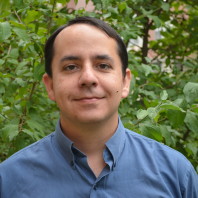
Dr. Willits is an Assistant Professor of Criminal Justice and Criminology at Washington State University. Dr. Willits earned his Ph.D. from the University of New Mexico in 2012 and previously held a tenure-track position in the California State University system. His research interests explore issues related to drug policy, policing, violence, and public health. He is the Co-Principal Investigator on a National Institute of Justice funded project examining the effects of I-502 on crime and law enforcement in Washington. His research on marijuana examines the effects of legalization on crime, police performance, jail populations, and traffic safety. [more]

